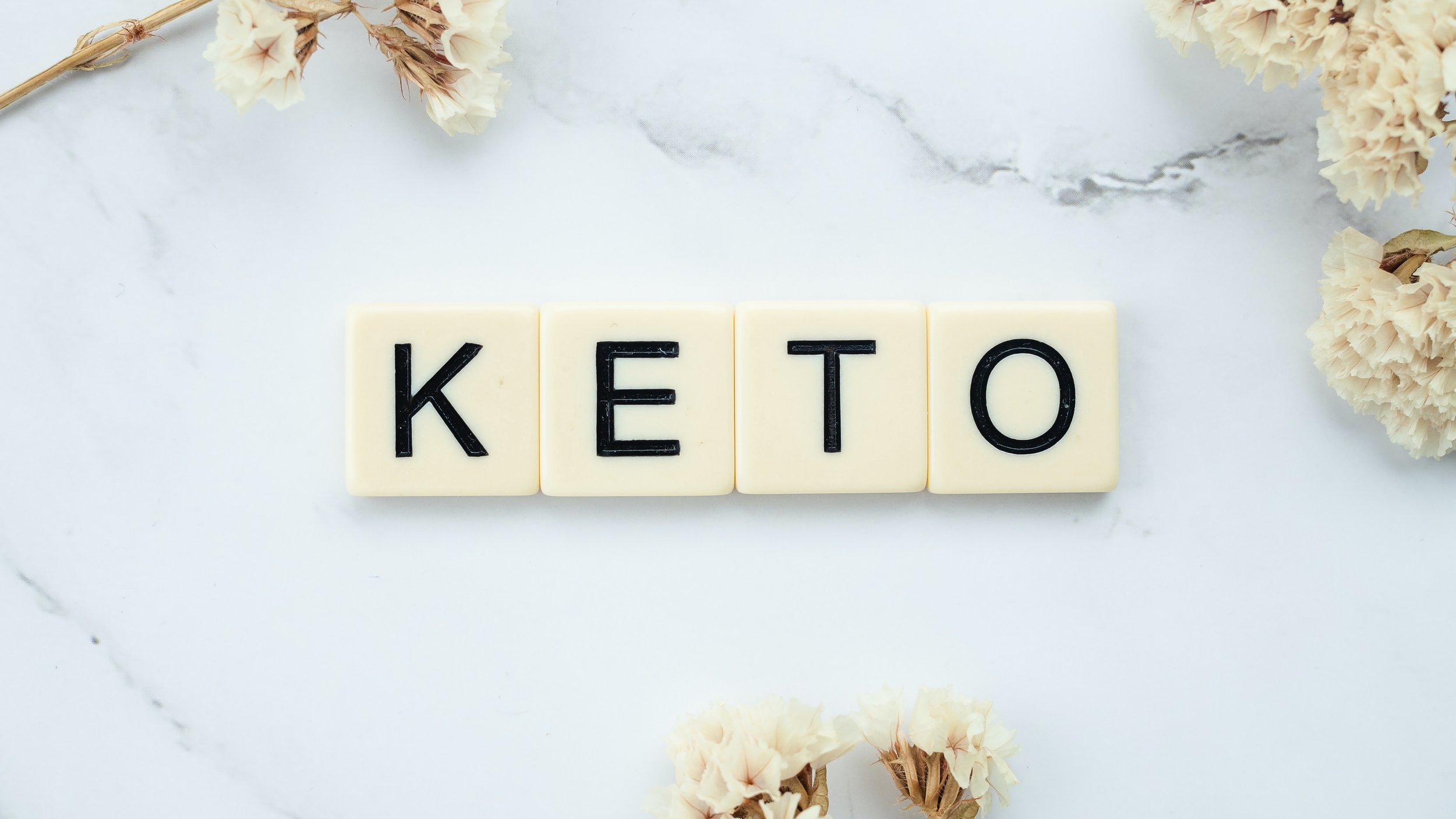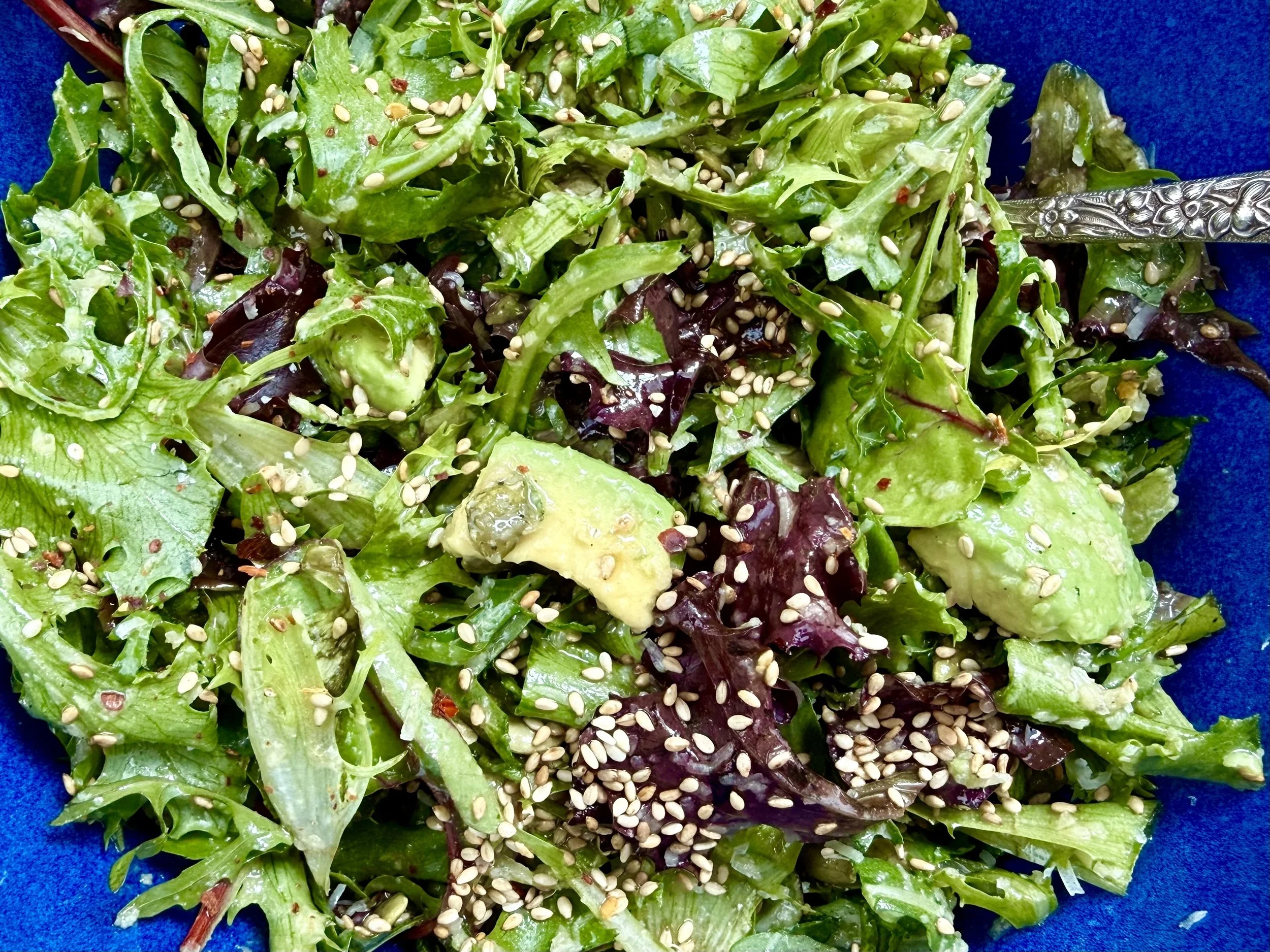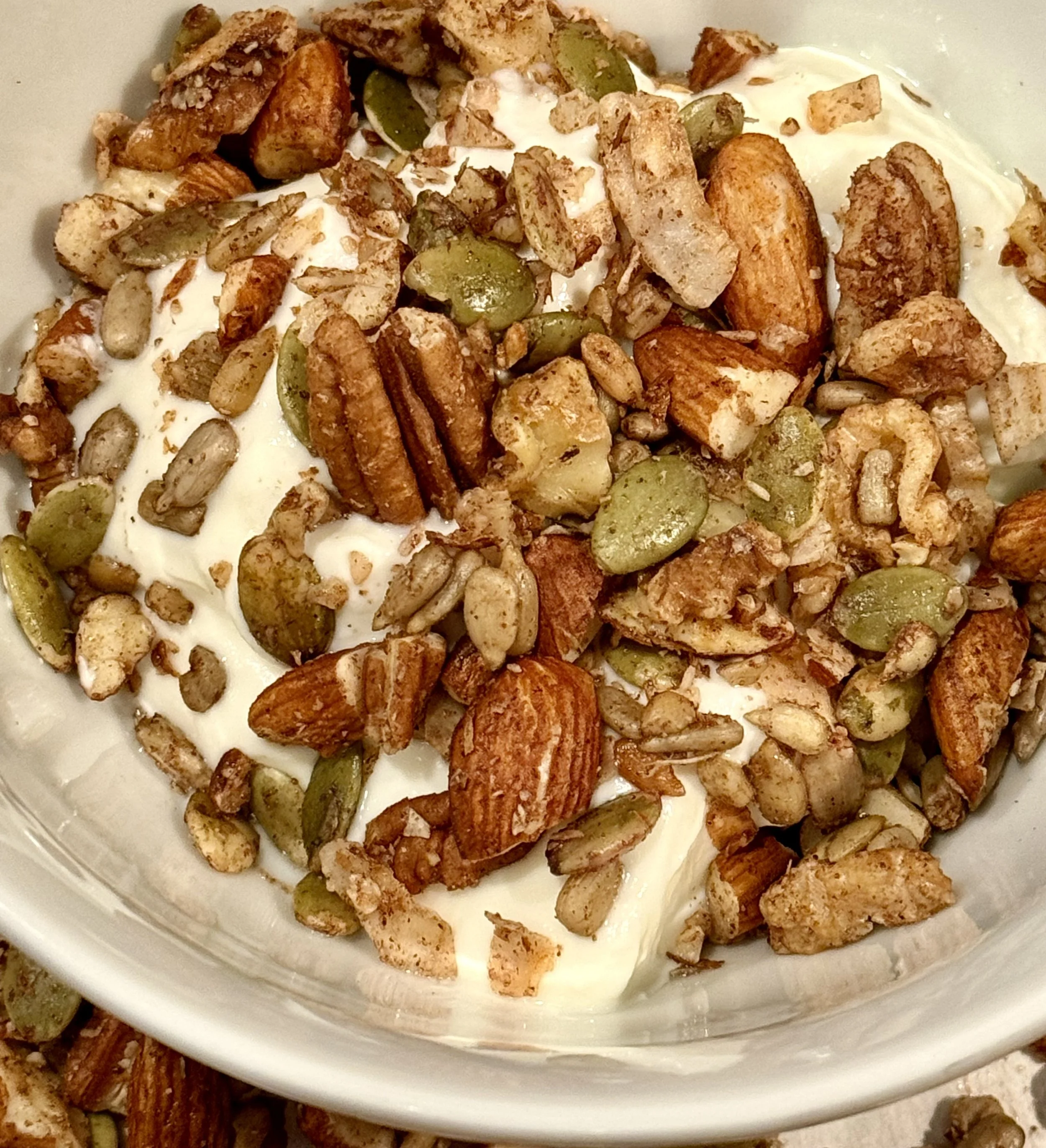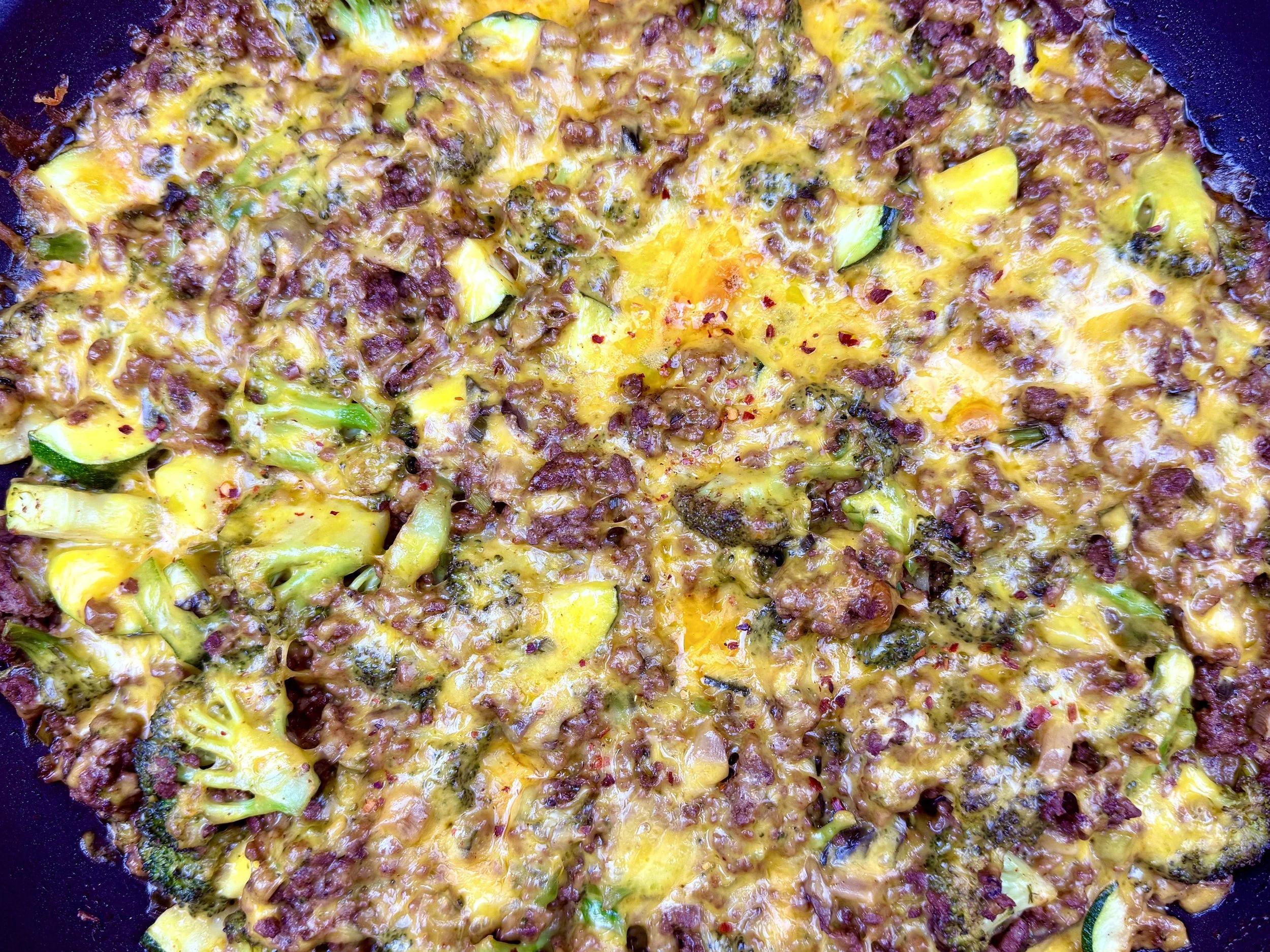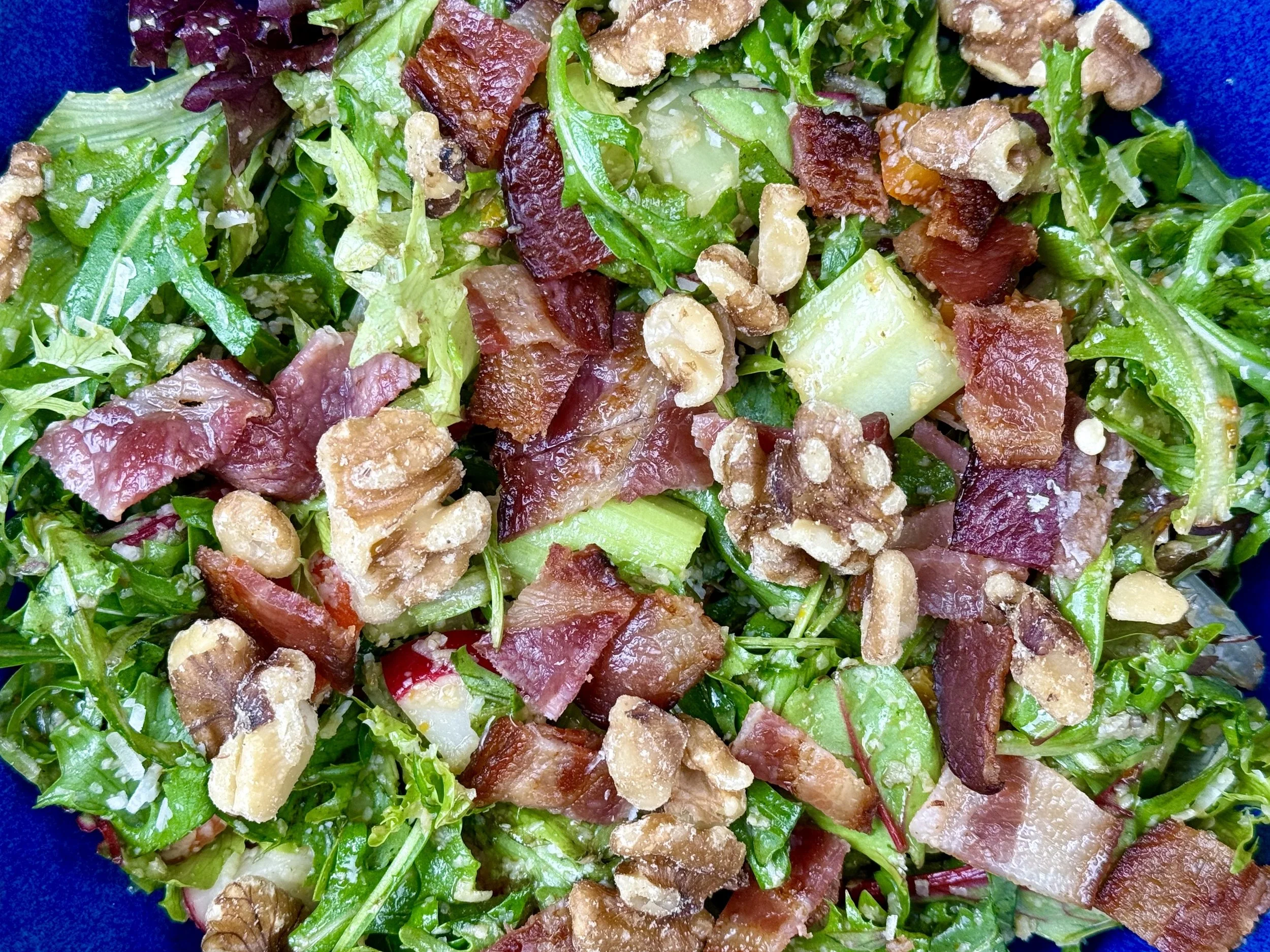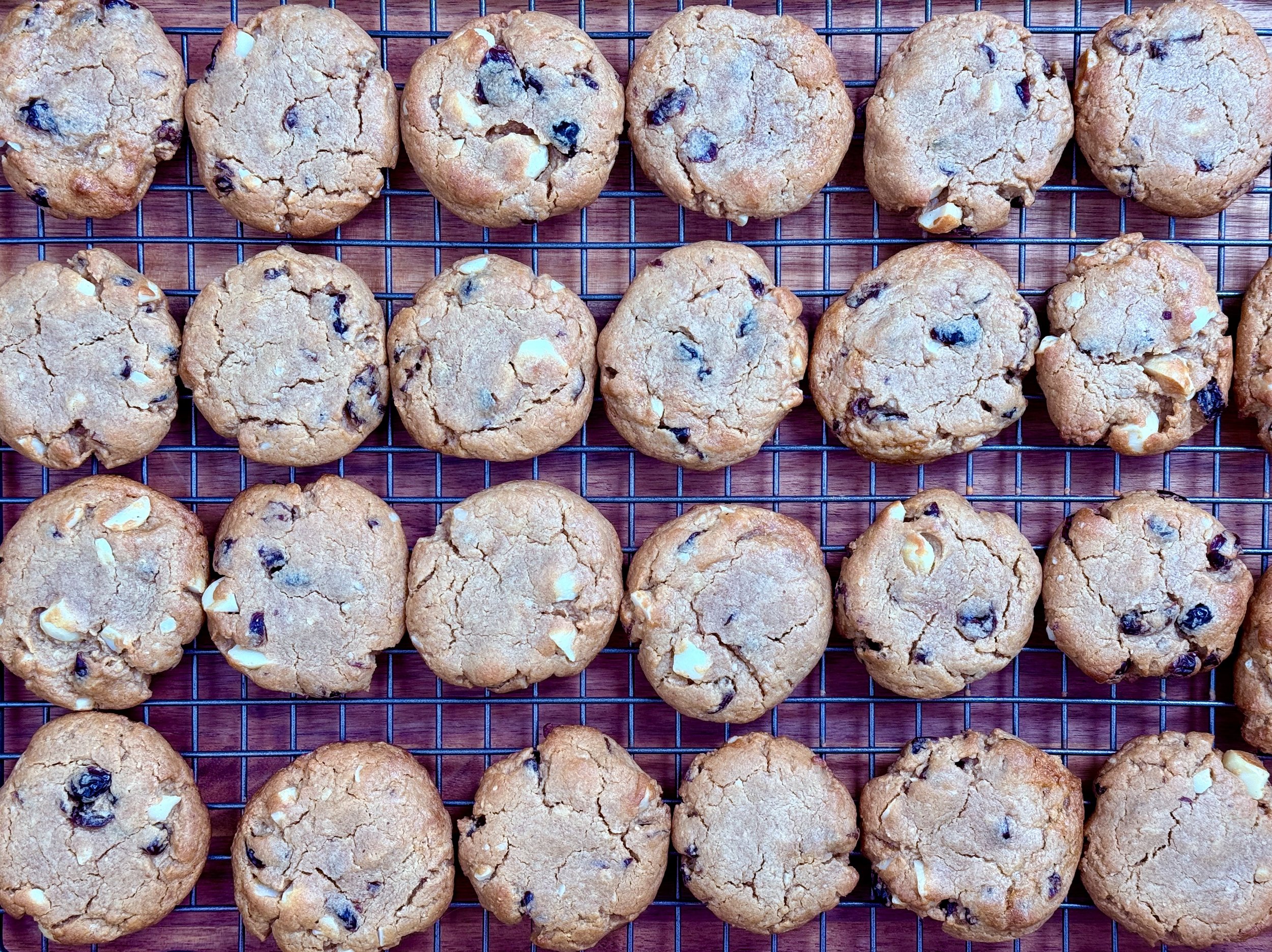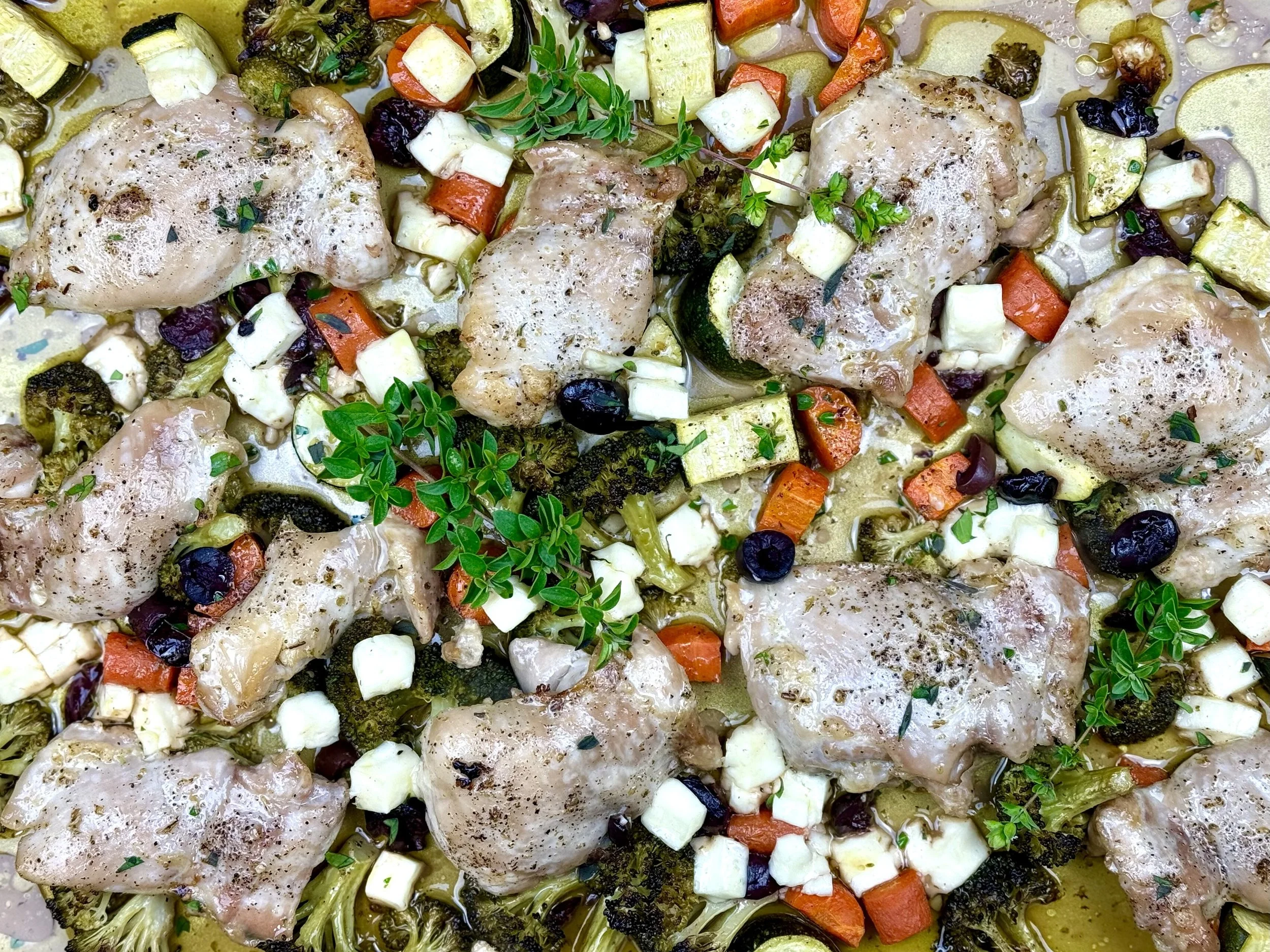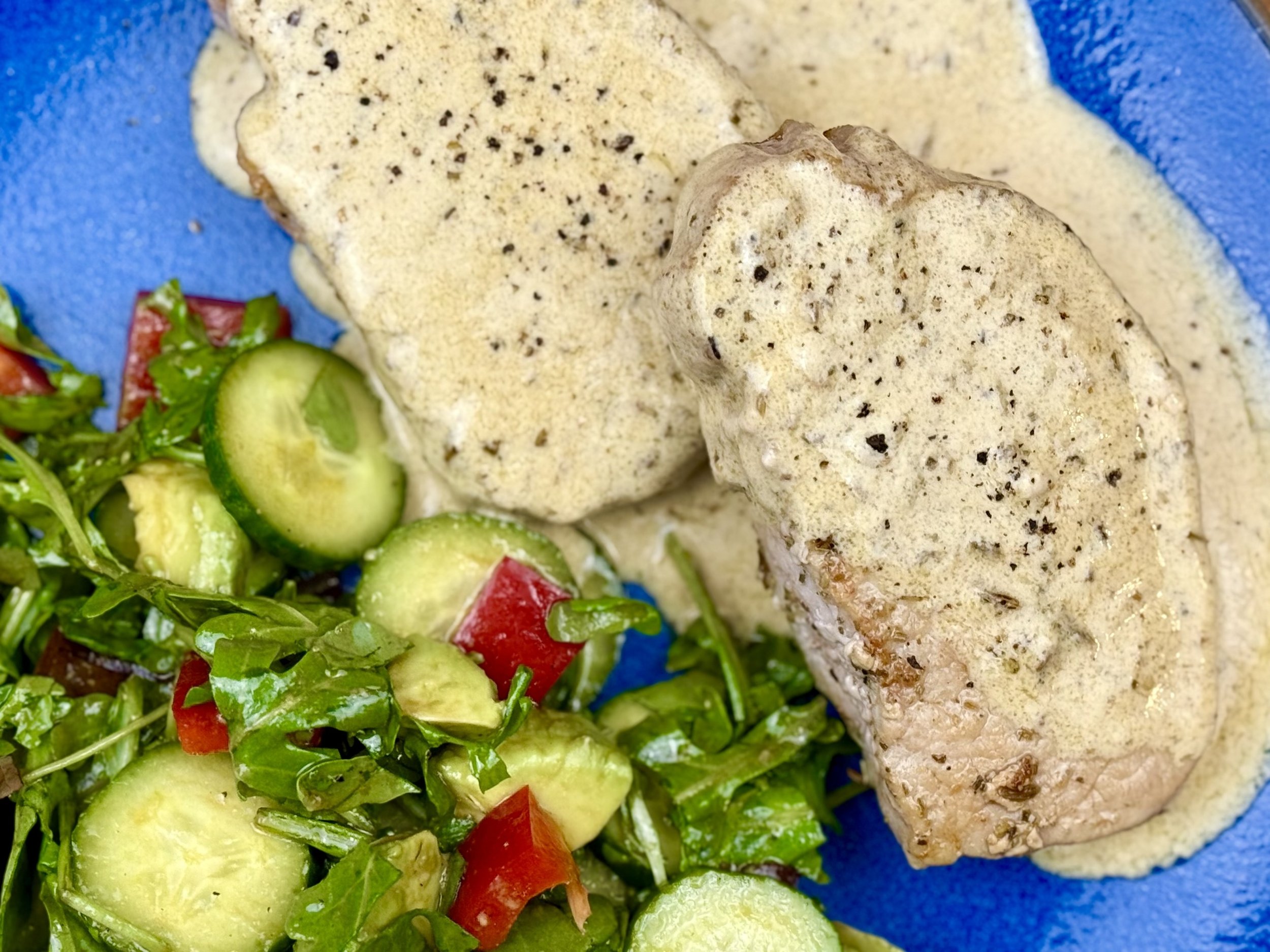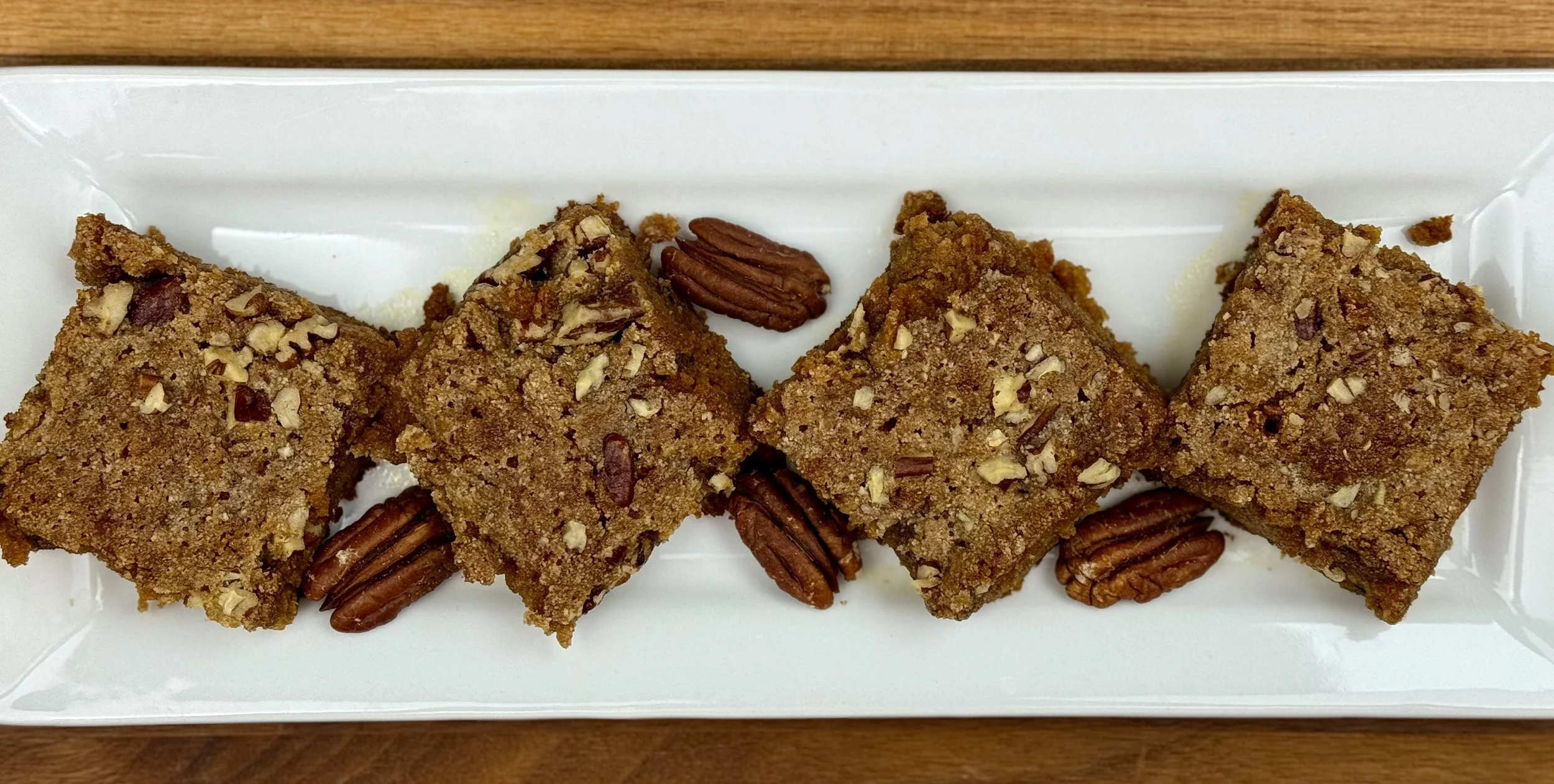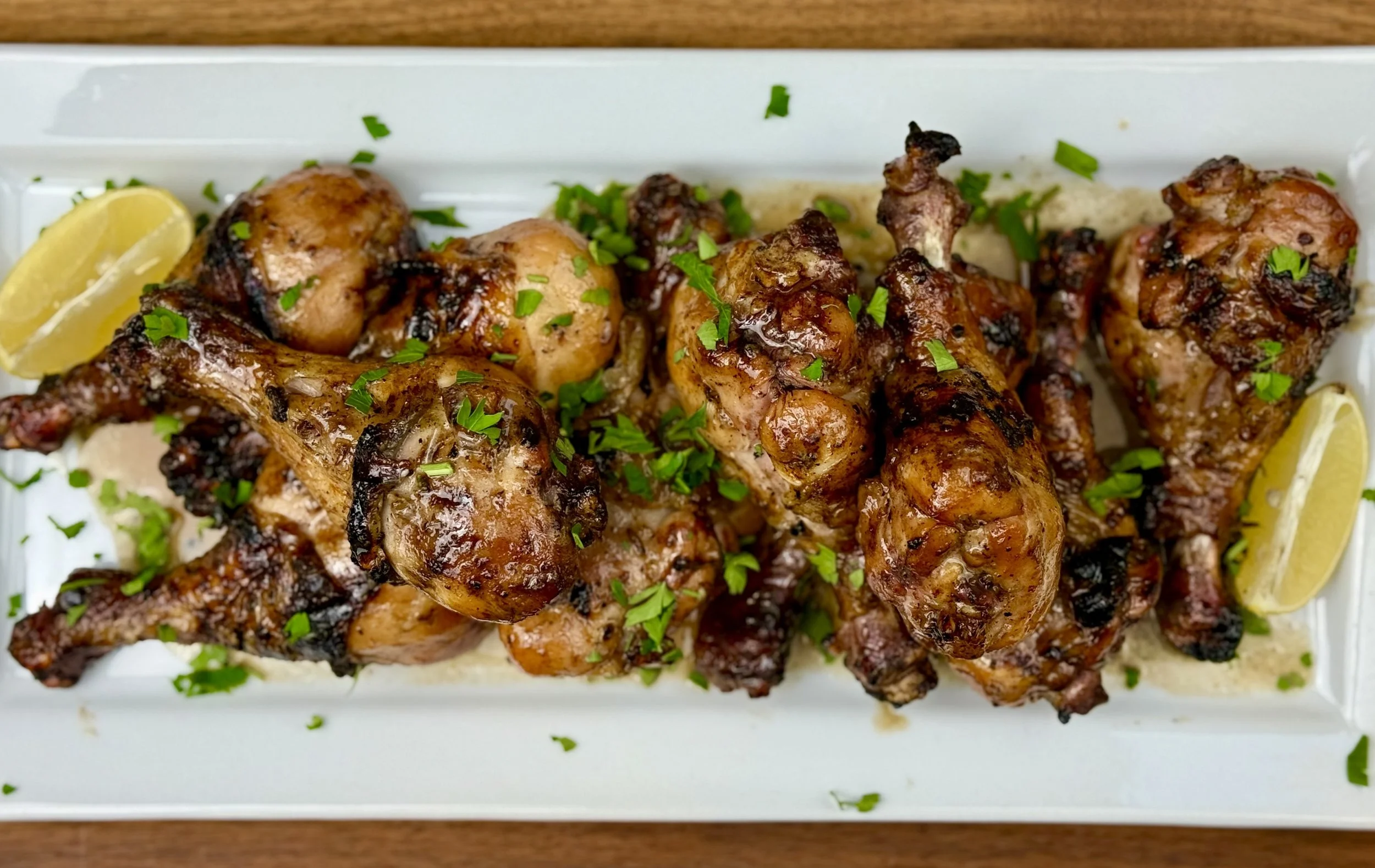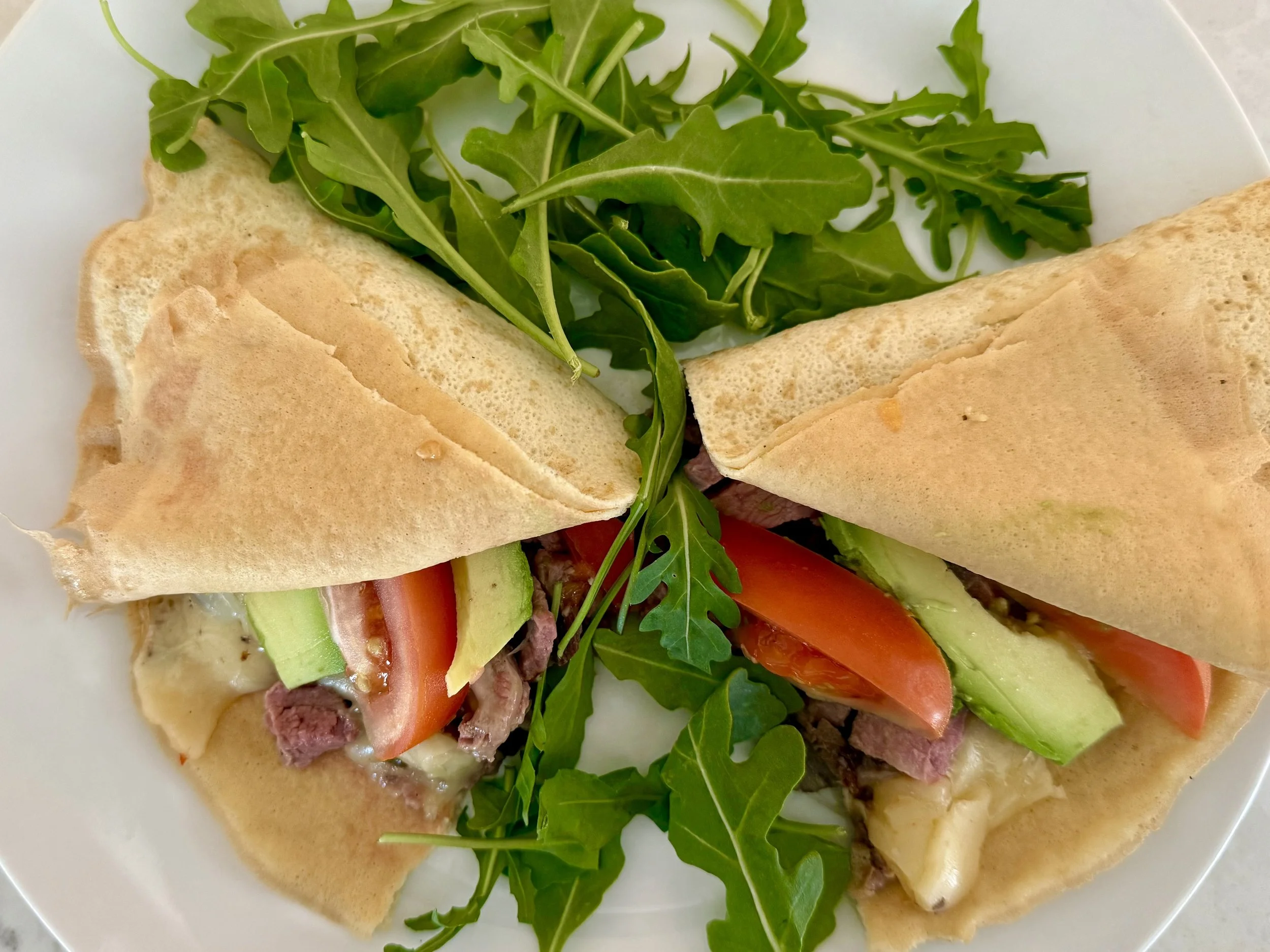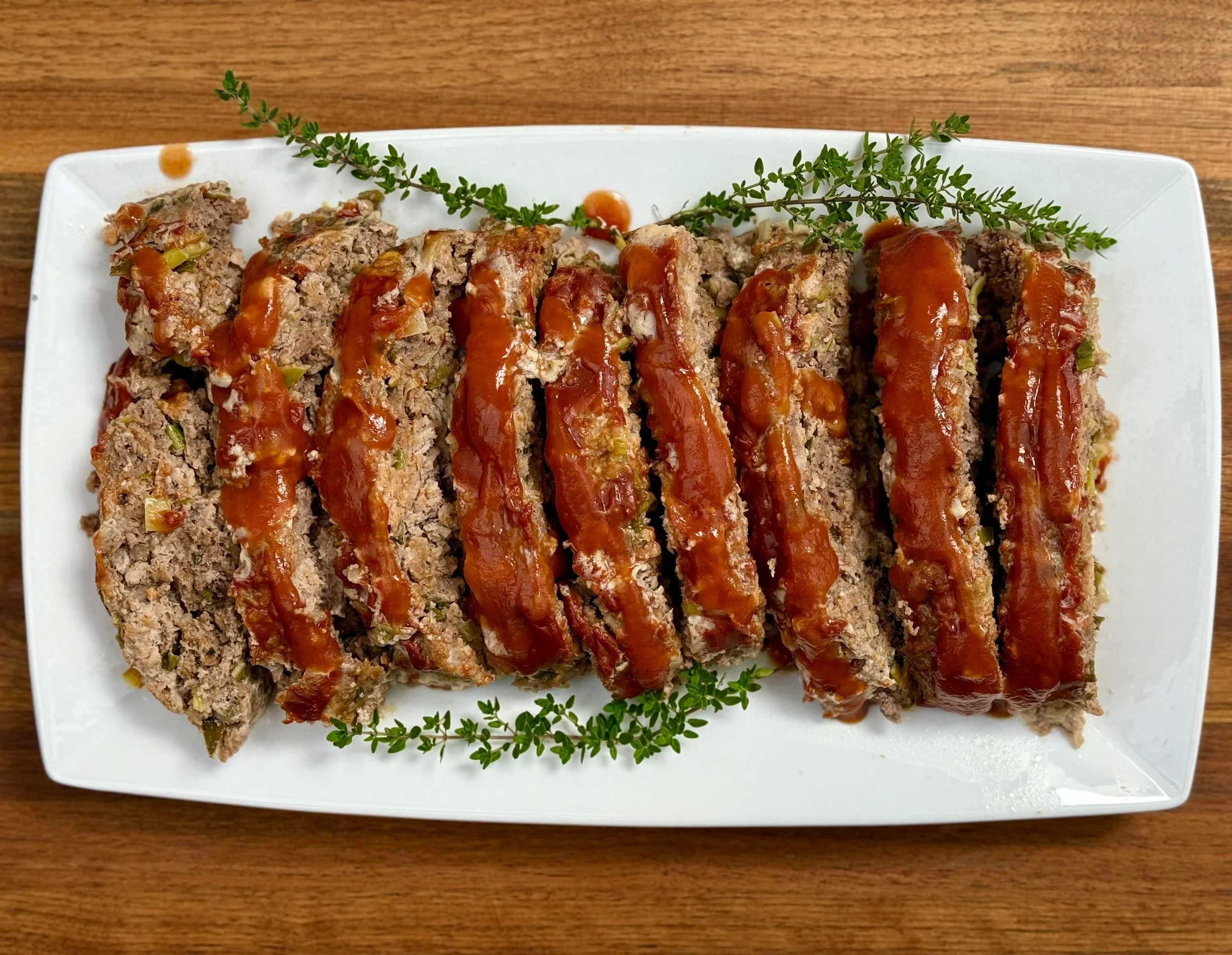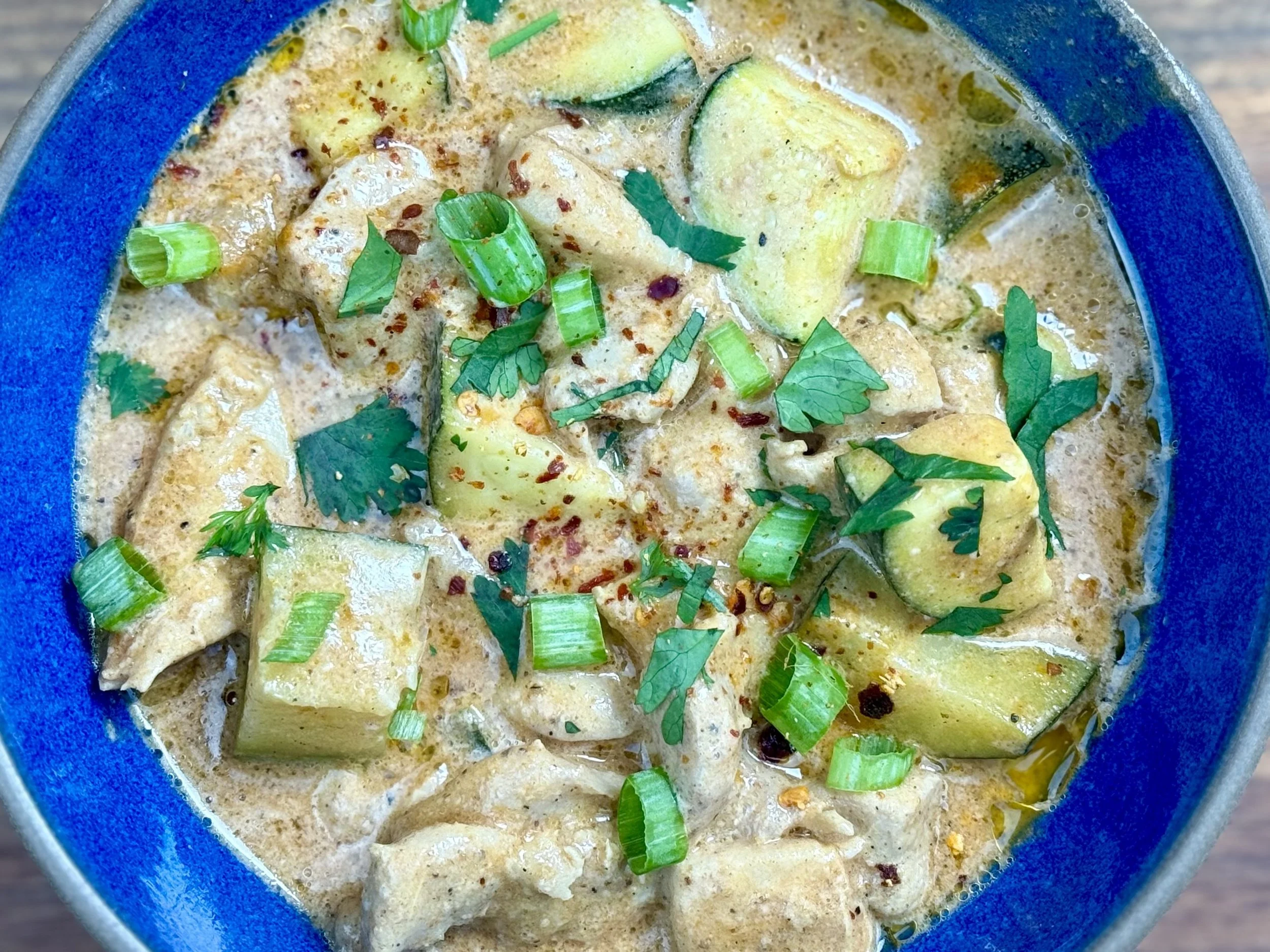Curious about Keto and using the Keto Diet to Manage IBS Symptoms?
Irritable Bowel Syndrome (IBS) affects millions of people worldwide and if you are reading this, it’s likely you are one of those people. Unfortunately, there’s no one-size-fits-all solution for managing IBS, which is why I am constantly learning and researching new possibilities to share with you. Recently, I attended a conference for Metabolic Health Practitioners and much of the data presented led me to conclude a ketogenic diet could be one pathway to relief for some of us with IBS. In this blog post, I am sharing how the keto diet can potentially help control your IBS symptoms, and what the keto diet is, along with some practical tips for getting started on a keto diet.
The Basics of the Keto Diet
The ketogenic diet is higher in healthy fats, and lower in carbohydrates which is designed to shift the body into a state of ketosis, where it burns fat for fuel instead of carbohydrates. This metabolic shift can impact various aspects of health, including mental alertness and concentration, getting rid of excess weight, and managing IBS symptoms. Because all FODMAPs are carbohydrates, it stands to reason a low-carbohydrate diet will reduce your IBS symptoms. For some people with IBS, trying to understand FODMAPs and what you can and cannot eat is a huge challenge. The keto diet may help simplify things to the point that real relief from IBS symptoms can be achieved and maintained without having to focus so much on the potentially overwhelming world of FODMAPs.
The Potential Benefits for People With IBS
Reduced Carbohydrate Intake: This is the primary pathway to relief because we know all FODMAPs are carbohydrates and FODMAPs can trigger IBS symptoms in most people with IBS. The keto diet drastically limits carb intake, potentially reducing exposure to FODMAPs and eliminating most symptom triggers.
Improved Gut Microbiome: As I’ve mentioned before, there’s emerging research that points to a connection between the gut microbiome and IBS symptoms. The keto diet might positively influence the gut microbiome composition, which could alleviate IBS symptoms.
Stabilized Blood Sugar Levels: Fluctuating blood sugar levels can contribute to IBS symptoms. The keto diet's focus on fats and proteins can help stabilize blood sugar, potentially reducing the symptoms that are related to excess sugar.
Implementing the Keto Diet for IBS Management
Before making dietary changes, it’s always a good idea to consult your own healthcare provider, especially if you have other underlying health conditions. They can guide you on whether the keto diet is suitable for you.
Once you get the go-ahead, ease into the keto diet slowly to allow your body to adapt. Drastic changes can sometimes trigger digestive discomfort.
When eating a keto diet, opt for low-FODMAP foods within the keto framework. Examples include meats, fish, eggs, non-starchy vegetables, and certain nuts and seeds. Keep in mind, you are taking carbs out and adding fats in. If you have questions about the FODMAPs in any food, I recommend using the Monash University FODMAP app. It’s the gold standard when it comes to food and FODMAPs.
Keep yourself hydrated. This, of course, applies to all diets but in particular, the keto diet that can cause increased water and electrolyte loss. If you have trouble maintaining your electrolyte balance as a result of fluid loss, I recommend using Trace Minerals 40,000 Volts drops (up to 1 teaspoon per day) to maintain electrolyte balance without adding sugar or other FODMAP-containing ingredients to your diet.
While the keto diet is low in carbs, incorporating low-carb, non-starchy vegetables can provide essential fiber to support gut health. (If you find you need more fiber, I recommend adding up to one scoop of Paleo Fiber Resistant Starch Fiber to your daily routine.)
Finally, mindful eating is more important than you might think no matter what diet you may be on. Pay attention to serving sizes and listen to your body's cues for fullness and satiation. Overeating on anything, even on keto-friendly foods, can exacerbate IBS symptoms.
Getting Started
Getting started on a keto diet requires some planning and preparation. Here's a step-by-step guide to help you get started:
Review the list of basic keto-friendly foods below.
Stock your kitchen. Clean out your pantry and stock up on keto-friendly ingredients. Focus on foods like avocados, olive oil, nuts, seeds, eggs, fatty fish, and non-starchy vegetables. Having these items readily available will make cooking keto meals much easier.
Plan your meals. Start by creating a meal plan that includes a variety of keto-friendly foods. Incorporate low-carb vegetables, lean proteins, healthy fats, and small portions of low FODMAP options. Planning your meals ahead of time will help you stick to the diet and avoid last-minute temptations. I have lots of low-FODMAP Keto-friendly recipes in my recipe club. Here’s a filtered view for you to find many of them.
Listen to your body. Every individual's response to the keto diet is unique. Pay attention to how your body reacts, and adjust your dietary choices accordingly. If you encounter persistent discomfort or adverse effects, consult your healthcare provider.
Remember, the keto diet isn't suitable for everyone, and its long-term effects are still being researched. It's important to prioritize a balanced, nutrient-dense diet that meets your individual needs and health goals. If the keto diet doesn't align with your preferences or health considerations, there are numerous other dietary strategies to explore in managing IBS symptoms. Always choose an approach that you enjoy and you can stick with or you won’t succeed.
So what do you eat on a keto diet?
On a keto diet, you'll primarily focus on consuming foods that are high in healthy fats, moderate in protein, and low in carbohydrates. Here's a list of basic foods that are typically included in a keto diet:
Healthy Fats:
Avocado (keep to 1/8 per sitting for low FODMAP) and avocado oil
Coconut oil and coconut products
Olive oil
Butter and ghee
Nuts and seeds (e.g., almonds, walnuts, chia seeds)
Fatty fish (e.g., salmon, mackerel)
Cheese (in moderation)
Heavy cream
Protein Sources:
Lean meats (e.g., chicken, turkey, beef, pork)
Fatty cuts of meat (e.g., bacon and sausage but watch for onions/garlic in the ingredients)
Eggs
Fish and seafood
Tofu (firm tofu is low FODMAP) and tempeh (for vegetarians)
Low-Carb Vegetables:
Leafy greens (e.g., spinach, kale, lettuce)
Cruciferous vegetables (e.g., broccoli tops are low FODMAP, and Arugula too)
Zucchini
Bell peppers
Cucumber
Berries (in Moderation):
Strawberries
Blueberries
Raspberries
Dairy Alternatives (if you don’t tolerate dairy well):
Unsweetened almond milk, coconut milk, or other plant-based milk (but watch for FODMAP ingredients)
Dairy-free cheese alternatives (check labels for carbohydrate content)
Herbs, Spices, and Condiments:
Herbs and spices (e.g., basil, oregano, etc.)
Salt and pepper
Vinegar
Mustard
Hot sauce
Beverages:
Water
Herbal tea (without added sugar)
Black coffee (decaf is best for those with IBS and in moderation)
Summing it up
The keto diet holds promise as a potential tool for managing IBS symptoms. However, it's crucial to remember that everyone's body responds differently to dietary changes. What works for one person might not work for another. The keto diet should be undertaken with careful consideration, ideally under the guidance of your healthcare provider. It's also important to continue exploring other IBS management strategies, such as exercise, stress reduction techniques, and identifying specific trigger foods. Using this comprehensive approach, you can work towards reducing the impact of IBS on your quality of life. If you want expert guidance and coaching to support your health journey, check out my complete coaching program here. I would love to help you!
Have a question you’d like to have answered? Email me at hello@ibsgamechanger.com
